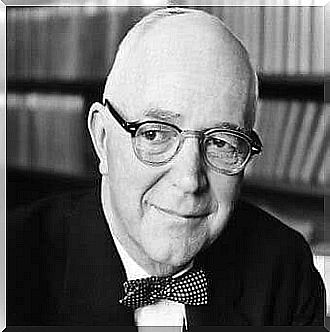Gordon Allport: Founder Of Personality Psychology

Gordon Allport was a psychologist who founded personality psychology. His theory is considered one of the first humanistic theories because it thinks of man as an autonomous being with free will.
Allport argued that instincts and impulses are not the only things that motivate people. He also said that people are not governed by their past.
Allport’s work is entertaining and accessible to the public. He explained things in a simple way that anyone can understand. People who want to learn more about psychology should read his work.
Gordon Allport studied motivation and personality. He left an important legacy and is a very interesting profile in psychology.
Early life
Gordon Allport was born in Indiana in 1897, but his family moved to Ohio when Gordon was still a child. His father was a doctor and worked from home.
Consequently, Gordon Allport and his siblings were exposed to the pharmaceutical world from a very early age. This aroused Allport’s interest in the field and especially in psychology.
Allport still chose to study economics and philosophy. However, since he never lost interest in social psychology, he eventually also graduated in psychology from Harvard University.
Later he traveled to Vienna. This was one of the most important periods in his life as he met Sigmund Freud on this journey.
Contrary to what you may think, Allport was not impressed by the father of psychoanalysis. Like many humanistic psychologists, Allport considered Freud’s theories rather restrictive.

His work
After returning to the United States, Allport began working as a psychology professor. He got a job at Harvard University, where he worked until his death.
During his time at Harvard, he joined several committees and gave innovative lectures. In 1939, he was elected leader of the American Psychological Association (APA).
Allport published several books. His most famous is Becoming: Basic Considerations for a Psychology of Personality .
During his lifetime, Allport received many awards recognizing his work and his contributions to the field of psychology. The APA awarded him the prestigious APA award for outstanding scientific contributions to psychology.
Gordon Allport emphasized the importance of an individual’s conscious motivations and thoughts. This led to his interest in personality development. Allport tried to find a balance between the popular theories of his time.
Behavioral science was incomplete and superficial while psychoanalysis was too complicated. The meeting with Freud cemented Allport’s interest in developing his own theory.
That’s how Gordon Allport contributed to personality psychology
His most famous contribution is his theory of personality, which states that every human being has hundreds of traits. He classified 4,500 words that define an individual and grouped them into three levels:
- Cardinal feature : This is a person’s dominant feature. They form his identity, feelings and behavior.
- Central features: These are primary features, but they are not dominant. They are innate in most people and form the basis of personality and actions.
- Secondary traits: These are private traits that are specific to each individual. People often reveal them only in confidence and in certain circumstances.

The legacy of Gordon Allport
In addition to his theory of personality traits, Allport identified genotypes and phenotypes. He identified the internal and external conditions that motivate a person’s behavior.
In his work Personality: A Psychological Interpretation (1937), he defined personality as: ” the dynamic organization within the individual of its psychophysical system that determines the unique adaptation to its environment “.
Allport also emphasized that each person has a unique personality. He was also interested in the nature of people’s will, motivation and determination.
He emphasized that each individual’s behavior and thoughts are the result of an entire life story. In other words, an individual’s thoughts are the fruit of its past and present.
Allport promoted an interdisciplinary movement at Harvard University, which led to the school creating the Social Science Division. Allport was also an outspoken critic of Freud’s psychoanalysis and radical behavioral science.
Gordon Allport also studied prejudice and religion. He analyzed the discrimination against Jews and African Americans, which he presented in his book The Nature of Prejudice .
Gordon Allport, the father of personality psychology, died on October 9, 1967. He left a fantastic legacy in the field of psychology and is considered one of the pioneers in humanist psychology.









